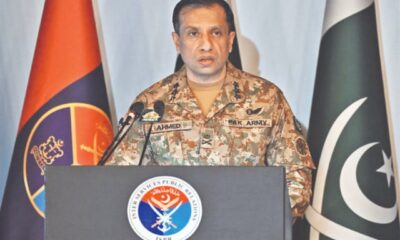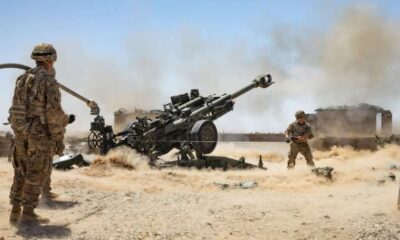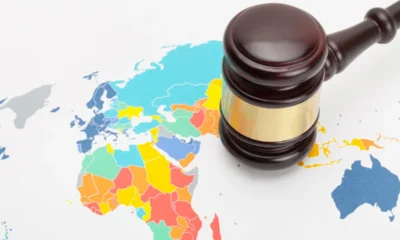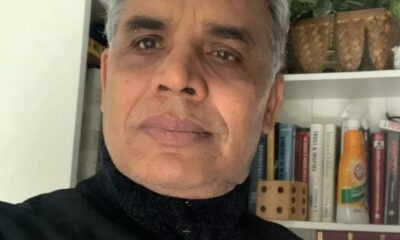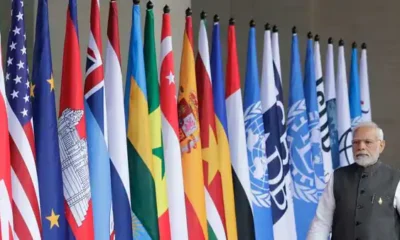Pakistan News
Replacing India with China in SAARC: A Strategic Masterstroke

Paris (Imran Y. CHOUDHRY) :- Former Press Secretary to the President, Former Press Minister to the Embassy of Pakistan to France, Former MD, SRBC Mr. Qamar Bashir analysis : For decades, the South Asian Association for Regional Cooperation (SAARC) was envisioned as a platform for unity, prosperity, and regional integration among the diverse and populous nations of South Asia. With over two billion people and a wealth of natural and human resources, the SAARC region held tremendous promise. Yet despite this potential, SAARC has remained paralyzed—reduced to ceremonial meetings, unfulfilled resolutions, and a legacy of frustration. The principal reason for its failure has been the hegemonic posture and political intransigence of India, which consistently prioritized its own bilateral disputes over collective regional interests. Whenever India had tensions with Pakistan, Nepal, Bangladesh, or Sri Lanka, it weaponized its influence within SAARC to paralyze the forum, suffocating any genuine attempt at regional cooperation.
Now, a new door has opened, and through it lies the opportunity for a historic transformation. Pakistan and China are reportedly working toward creating a new regional bloc that excludes India—the very actor that has repeatedly blocked progress—and instead includes willing and cooperative regional players.
The envisioned alliance includes Pakistan, China, Afghanistan, Bangladesh, Nepal, Sri Lanka, Bhutan, Maldives, Nepal, and potentially Iran. By replacing India with China, this restructured bloc is poised to deliver what SAARC never could: unity, stability, and development rooted in mutual respect and economic advancement. It is a masterstroke in regional diplomacy, one that offers South Asia a second chance at integration—this time with an engine powerful enough to carry the weight of transformation.
China’s inclusion brings with it unmatched potential for infrastructure development, trade expansion, digital connectivity, and strategic outreach. Having already committed over $62 billion to the China-Pakistan Economic Corridor (CPEC), and more than $1 trillion across its global Belt and Road Initiative (BRI), China’s proven commitment to long-term infrastructure and investment is unparalleled. If this new bloc materializes, it could witness infrastructure investments exceeding $250 to $300 billion by 2035. These would span across rail and road networks connecting Gwadar to Kabul, Chabahar to Dhaka, and Kathmandu to Colombo. High-speed rail corridors, smart ports, integrated energy grids, and region-wide highway systems could form the physical backbone of this new South Asian alliance.
Trade, long crippled under SAARC due to political interference, has a chance to flourish. Intra-SAARC trade has languished at a pitiful 5% of total regional trade, while ASEAN boasts over 25% and the EU surpasses 60%. With India out and China in, intra-regional trade in South Asia could rise to 20% by 2030, translating into over $250 billion in trade volume, compared to $67 billion today. China’s economic ties with Bangladesh, Sri Lanka, and Nepal are already strong, and its access to Pakistan’s warm-water ports offers landlocked Central Asian and South Asian countries a direct outlet to global markets. The potential for growth in textiles, agri-processing, electronics, construction materials, and green technologies is immense, laying the foundation for self-sustaining regional value chains.
Foreign direct investment is also expected to surge. China, the world’s second-largest source of outbound FDI, invested over $136 billion globally in 2023. In the current SAARC bloc, most Chinese FDI is confined to Pakistan. But a restructured bloc with China at the center could see FDI flows jump from the current $10 billion to over $100 billion by 2035. These funds would likely target special economic zones, digital infrastructure, energy projects, manufacturing clusters, and agricultural modernization—unlocking employment and industrialization at a scale the region has never witnessed before.
The digital revolution would also accelerate. China’s Digital Silk Road offers undersea cables, fiber optics, cloud computing, AI platforms, and next-gen telecom. Expansion of this model to the region could deliver high-speed internet to over 400 million currently underserved users, transforming education, healthcare, banking, and governance. Regional cloud computing systems, digital currency interoperability, and fintech solutions would enable real-time trade, financial inclusion, and cyber-resilience. China’s BeiDou satellite navigation system could replace the region’s dependence on U.S. GPS, empowering the bloc with sovereign control over aviation, logistics, and defense mapping—an essential step in building technological independence.
Strategically, the inclusion of Afghanistan is a geopolitical pivot. Afghanistan connects the bloc to Central Asia and, through China and Pakistan, to Iran and the Middle East. With Iran’s Chabahar Port and Pakistan’s Gwadar Port acting as twin maritime gateways, and with China constructing transit and trade corridors through the region, this alliance becomes a global artery of commerce. Central Asian energy and minerals could flow southward to the Arabian Sea, while South Asian goods find shorter, cheaper routes to Europe and Africa. Transportation costs across the region could fall by 30–50%, according to the Asian Development Bank, directly improving the competitiveness of exports and reducing the price of imports.
The human impact is equally transformative. With China’s support, the region could lift over 300 million people out of poverty by 2040 through job creation, industrial expansion, and rural upliftment. Unemployment across Pakistan, Bangladesh, and Afghanistan could decline by 15 to 20%, and access to clean water, electricity, healthcare, and digital literacy would expand exponentially. China’s model of non-interference—unlike Western or Indian models—ensures that sovereignty remains intact. Beijing does not fund regime change, nor does it meddle in domestic politics. It delivers roads, power plants, ports, and platforms—not political ultimatums. It respects its partners and uplifts their capacity.
India’s exclusion is not an act of retaliation but of necessity. Its leadership has repeatedly failed to grasp the essence of regional cooperation. New Delhi’s rigid nationalism, refusal to separate bilateral issues from multilateral platforms, and its track record of stalling progress made SAARC unworkable. Its foreign policy has alienated neighbors and irritated allies. Even its Western backers are increasingly wary of India’s refusal to align on key global issues, such as sanctions on Russia or trade cooperation. India sees itself as a regional giant, but in practice it has been a disruptive force in South Asian diplomacy.
This realignment offers South Asia a future where roads replace borders, where fiber optics replace fences, and where mutual progress replaces mutual suspicion. It envisions a regional community where ports connect producers to consumers, where satellites link students to teachers, and where dignity replaces desperation. The potential is no longer theoretical. It is tangible, measurable, and achievable—if the political will aligns with regional ambition.
South Asia has waited long enough. While other regions moved forward, we remained frozen in a structure designed to fail. But with China’s entry and India’s exclusion, we now have the opportunity to design a platform that works—for people, for peace, and for prosperity. It is not merely about replacing a nation with another. It is about replacing a mindset of dominance with one of partnership. It is about building a future that no longer depends on the whims of one capital but is driven by the shared dreams of a billion people.
If the vision is pursued with clarity and courage, this new South Asian bloc—backed by China’s resources and guided by mutual interest—will not only transform the region. It will set a global example of how fractured regions can reinvent themselves, not through confrontation, but through cooperation.
Pakistan News
In fiery presser, ISPR DG terms Imran Khan ‘mentally ill, national security threat’
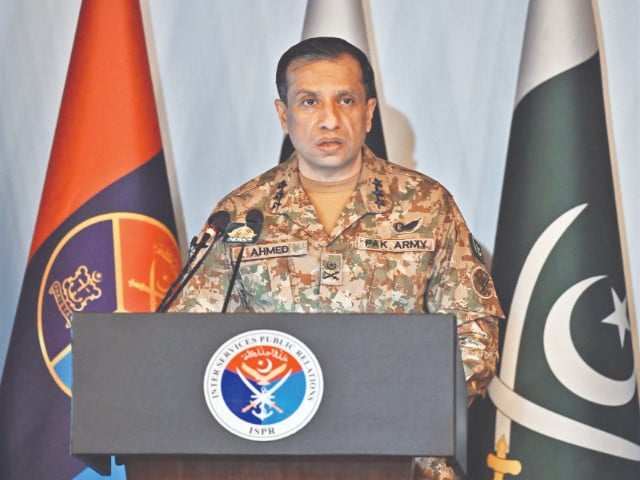
“His ego and desires have grown to such an extent that he says if not me, then nothing,” says Lt Gen Chaudhry
Inter-Services Public Relations (ISPR) Director General Lt Gen Ahmed Sharif Chaudhry on Friday castigated Pakistan Tehreek-e-Insaf (PTI) founder Imran Khan and his party’s “anti-army’s rhetoric”, terming him a “mentally ill person, whose conduct had become a “serious national security threat”.
Addressing an over two-hour-long press conference in Rawalpindi, the military’s spokesperson slammed the former prime minister for working with “external elements, spreading disinformation, provoking unrest and persistently targeting the armed forces”.
The ISPR chief said today’s briefing was aimed at outlining internal national security challenges, saying that nothing is above the state of Pakistan.
Without naming anyone, Lt Gen Chaudry referred to the jailed PTI founder saying: “His ego and desires have grown to such an extent that he says if not me, then nothing.”
Describing what he called a “delusional mindset” of a “person captive of his own thoughts,” Lt Gen Chaudhry said that the narrative promoted by a particular political figure has “evolved into a national security threat”.
The ISPR DG said that anyone who attacks the armed forces or its leadership is effectively “creating space for another army”.
Lt Gen Chaudhry asserted that the PTI founder keeps the Constitution, the law and established rules aside while promoting this narrative.
He said that the PTI founder sends a narrative against the military and its leadership whenever a meeting is held at Adiala jail.
PTI founder ‘mentally ill’
Addressing the presser, the ISPR DG slammed Imran for “placing personal ego above national interest and of repeatedly promoting an anti-Pakistan, anti-army narrative”.
“This mentally ill individual tweeted two days ago. He believes nothing exists beyond him — not even Pakistan.”
“We respect Pakistan’s political leadership but keep the army away from your politics,” the military’s spokesperson said, adding: “We will not allow anyone to create a rift between Pakistan’s army and the people”.
Lt Gen Chaudhry said Imran had promoted a “scientific system” of coordinated troll activity, driven narratives through his own social media accounts, and repeatedly likened himself to Sheikh Mujibur Rahman.
Indian, Afghan and some international media, he said, amplified his messaging, with troll networks abroad boosting content in synchronised cycles.
According to the ISPR DG, the former premier has now become a national security threat and is working in coordination with external elements.
Giving another recent example, the general said this individual had claimed that anyone from his own party who visited the National Defence University (NDU) would be a traitor. “According to his logic, anyone who goes to ISPR is also a traitor,” he added.
Noting that the freedom of expression is allowed under Article 19 of the Constitution, the ISPR DG said that it carries certain restrictions with it as well and does not permit anyone to speak against the state and national security.
Lt Gen Chaudhry said the “mentally disturbed individual” had recently posted a tweet and asked his supporters to target military leadership that stood firm against an enemy eight times stronger in the Operation Bunyan-um-Marsoos.
“There is an entire science behind this,” the ISPR DG said.
Referring to the PTI founder, Lt Gen Chaudhary said: “Who are you? Whose language are you speaking? What do you think of yourself?”
The DG ISPR said that the public had already witnessed the “symptoms of a disturbed mindset”.
He asked whether the individual had not previously instigated the May 9 attack on the General Headquarters (GHQ).
“This person believes that anyone serving in the Pakistan Army is a traitor,” the DG ISPR asserted, adding that this person considers himself to be the only one who is right and believes everyone else is wrong.
He questioned why this individual did not speak about Pakistan’s significant issues.
Vows response to attack on army
The ISPR DG said that the PTI founder first creates a narrative aimed at halting remittances to push Pakistan toward default, and then calls for targeting the army’s leadership, which successfully stood firm against India during the four-day war in May.
“When you ask his party, they say that we do not know where the narrative comes from,” the military’s spokesperson said.
“A person who thinks that nothing is above his own self, even Pakistan, has [in fact] become a national security threat,” the general warned, saying that “this person is working with external elements”.
“If someone attacks the Pakistan Army, then we will also respond.”
Referring to the social media post concerned, he shed light on how the Indian media and troll accounts, operating from outside Pakistan, pick up on this narrative.
“Accounts come after the tweet in a sequential manner [….] The original narrative was given by this mental patient by tweeting.”
“Uzma Khan is sitting on the Indian media and telling PTI to attack,” Lt Gen Chaudhry highlighted.
The ISPR DG cautioned that anyone attacking Pakistan’s Armed Forces “under their own political mindset” should expect a response.
Reaffirming the institution’s stance, he said, “We are the armed forces of Pakistan and do not represent any political ideology.”
CDF notification propaganda
The ISPR DG described the propaganda surrounding the CDF notification as “a flood of lies,” questioning what kind of politics of freedom of expression this represented.
“Please grow up. Talk about real issues,” he said, adding that even routine military news was being used to generate propaganda.
Continuing his remarks, the ISPR DG said that Afghan social media was also actively involved in amplifying the narrative of the PTI founder.
“Three days ago, they repeated their narrative of dialogue with the terrorists. They pushed the line that intelligence-based operations should not be carried out,” he added.
“By the logic of this mentally disturbed individual, if India had attacked, he would have walked around with a begging bowl saying, ‘Come, let’s talk.'”
The ISPR DG noted that the PTI founder was the same person “who suggested opening an office for khawarij in Peshawar”.
“This obsession with talks is not new for him,” the DG ISPR said, adding that the former premier provokes people to stand against operations.
“We are absolutely clear that his politics or his personality cannot be above the state,” he stressed.
“This is a mental disorder — this is a terror-crime nexus. It involves drugs, NCP, kidnapping for ransom and several other things.”
The ISPR DG cautioned that anyone who stands against the political terror-crime nexus could face orchestrated attacks.
‘Terrorism and extremism’
Lt Gen Chaudhry reaffirmed that the Pakistan Army stood between the public and “khawarij terrorists”.
While Pakistan had never refused dialogue, he said talks with violent extremists were out of the question. Citing Paigham-e-Pakistan, he reminded that the country’s top Ulema had rejected extremism.
He said some individuals had revived the narrative of “talking to the khawarij” only three days earlier.
The DG ISPR criticised those opposing security operations, saying the Khyber Pakhtunkhwa police were sacrificing their lives daily.
He questioned why some urged the halting of intelligence-based operations, stressing that terrorism would not end in a day and required political will. He said those advancing such arguments worked against the unanimous national narrative.
The ISPR DG said that by December 3, as many as 1.8 million illegal Afghan migrants had been repatriated under government policy.
‘State is supreme’
Emphasising constitutional hierarchy, the ISPR DG said the state — and the elected government — were supreme, not individuals or institutions. The army, he said, was an institution functioning under civilian authority.
Freedom of speech under Article 19 had limits, he noted, and could not be exercised against national security.
Responding to criticism of military capability and governance, he said the army had proved itself in battle, and that the country had not defaulted despite predictions.
Calling the current discourse a “disease — a mental disorder”, he said the business of lies and deception would no longer continue.
He dismissed online attacks, referring to them as “a barking dog — do not worry about it”.
“We stand on the side of truth, and we will remain on the side of truth,” he added.
‘Media must act responsibly’
Lt Gen Chaudhry urged the media to act responsibly, “call truth truth and falsehood false”, and focus on real national issues.
Pakistan, he said, had let billions of dollars’ worth of floodwater flow into the sea, maintained severely inadequate water storage and faced population pressures, requiring serious debate on food security.
He said the country had “politicised everything — even the national narrative”.
He said questions on governance triggered attacks from the “political-crime nexus”.
Criticising political leaders who kept their own children abroad, he urged them to send their children to the army.
Governor’s rule, he noted, was solely the government’s decision. “We are clear that no individual or politics is greater than the state.”
Concluding the briefing, Lt Gen Chaudhry said the army would not allow rifts between the institution and the public. He warned political actors to stop dragging the military into their disputes, adding that attacks on the army would draw responses.
“It is clear as daylight: we will protect the state,” he said. Calling for maturity, he said: “We are all Bunyan-um-Marsoos — a solid, united structure. Pakistan will remain, and the Pakistan Army will remain.”
News Taken From Geo News
https://www.geo.tv/latest/637487-ispr-dg-lt-gen-chaudhry-to-address-press-conference-today
Pakistan News
Pakistani Delegates of the Model United Nations International Visited the Embassy
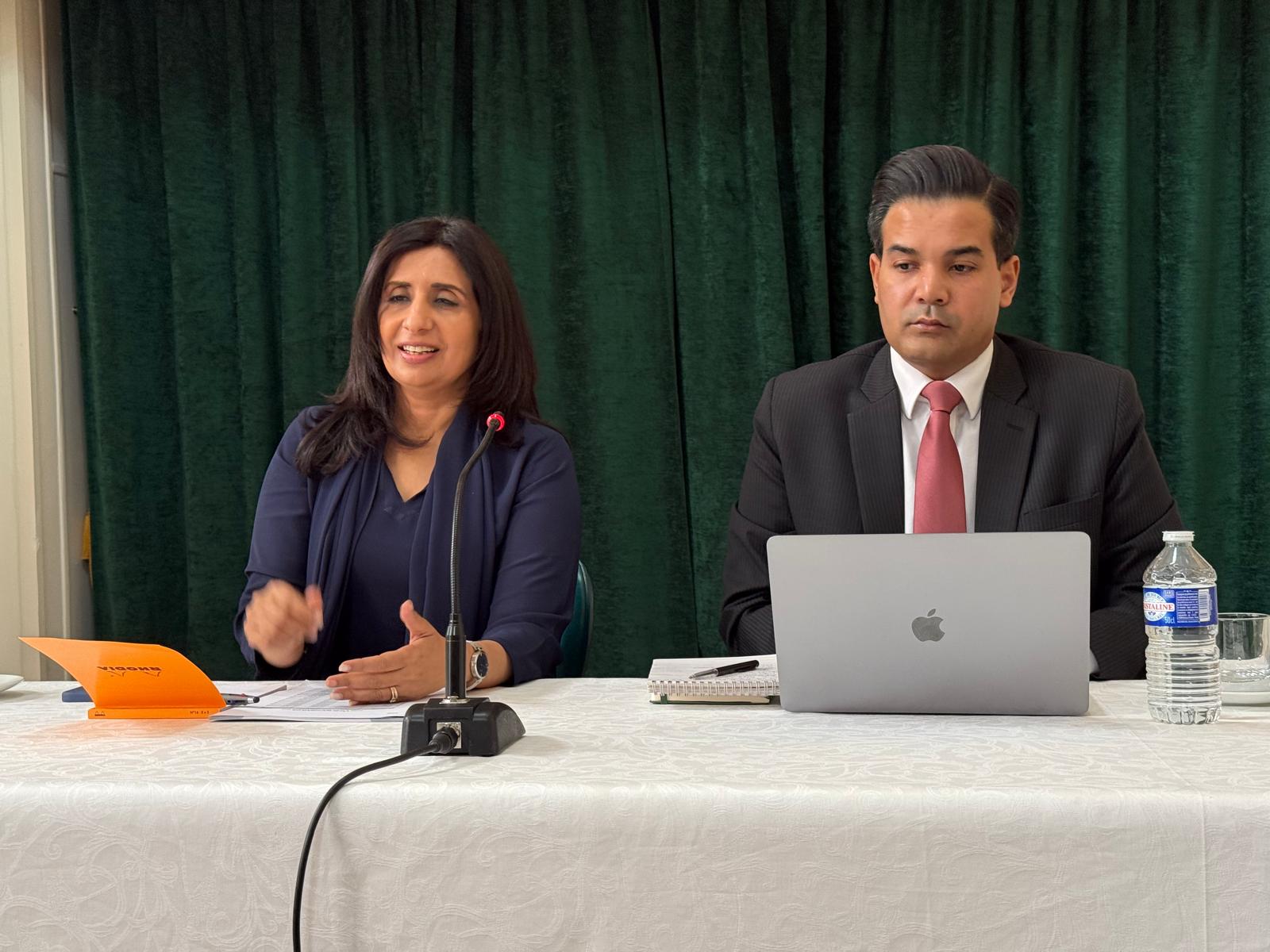
Paris (Imran Y. CHOUDHRY):- A group of Pakistani delegates of the Model United Nations (MUN) International being held in Paris visited the Embassy today for an interactive briefing session. They were briefed on Pakistan’s priorities in international organizations especially those based in Paris.
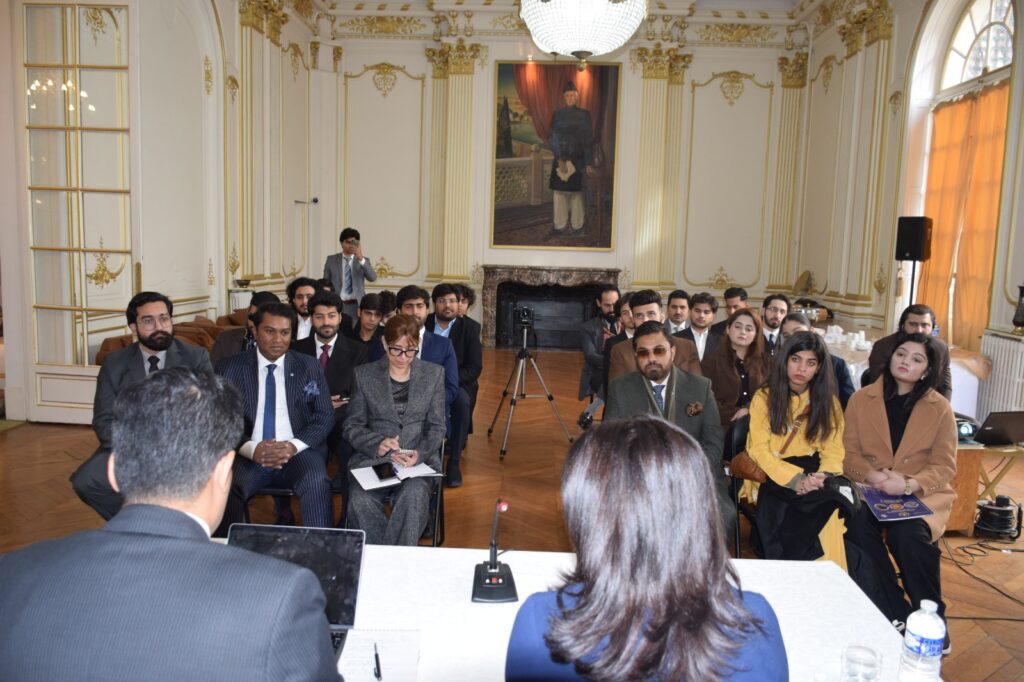
Addressing the participants, Ambassador Madam Mumtaz Zahra Baloch underscored Pakistan’s commitment to multilateralism, international law, and peaceful settlement of disputes.
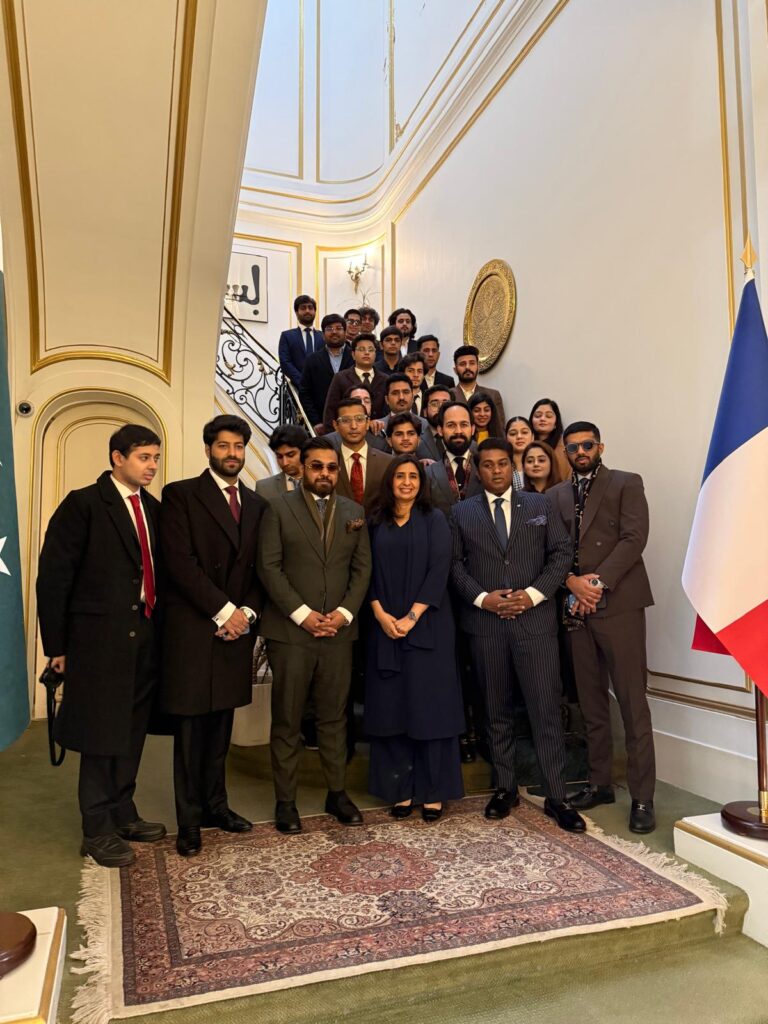
She also briefed them on the constructive role played by Pakistan in advancing the mandate of UNESCO during its tenure as a Vice-Chair of the Executive Board (2023–2025) and championing the priorities of developing countries.
Pakistan News
What new changes has the National Assembly made to the 27th Constitutional Amendment bill?

The National Assembly on Wednesday passed the 27th Constitutional Amendment Bill during a ruckus-marred session attended by political heavyweights, including Prime Minister Shehbaz Sharif, PML-N President Nawaz Sharif and PPP Chairman Bilawal Bhutto-Zardari.
The bill was passed by a two-way voting process — voting by division and clause-by-clause voting. Presented in the house for voting by Law Minister Azam Nazeer Tarar, the bill will now be referred back to the Senate for the new amendments to be debated upon again and then will be passed by the upper house.
During the session, Tarar presented a list of amendments to the bill, while also omitting some of the bill’s clauses.
From the law minister’s speech in the National Assembly, the amendments were promulgated mainly to incorporate the newly setup Federal Constitutional Court (FCC) in the scheme of the Constitution and to provide clarity regarding the incumbent and future chief justice of Pakistan (CJP) since the new constitutional court means it will have its own chief justice (CJFCC), along with the chief justice of the Supreme Court (CJSC).
Amendments related to Federal Constitutional Court
Substitution of new Clause 2
The first change pertained to Clause 2 of the 27th Amendment Bill, 2025, which dealt with a change to Article 10(4)(1) of the Constitution (safeguards as to arrest and detention). The relevant section currently says that the CJP will form the review board in a case of someone detained under a federal law.
The amendment sought to insert the words “Supreme Court of” in front of the “chief justice of” to now show that the CJSC would be the one to form the board.
However, the new Clause 2 as per the amendments deals with changes to Article 6’s (high treason) clause 2A, which reads as follows:
An act of high treason mentioned in clause (1) or clause (2) shall not be validated by any court, including the SC and a high court.
In the latest amendment, it was stated that after the word “the”, the words “Federal Constitutional Court” and a comma would be inserted, thus adding the FCC to the list of courts that cannot ratify any act of high treason and placing it before the SC in the listing.
Amendments related to Supreme Court, its chief justice and CJP
Insertion of Clause 2A
Meanwhile, the previous Clause 2 of the bill would now be labelled as Clause 2A.
As explained before, the CJSC will now be the one to form the review board for the case of someone detained under a federal law.
Substitution of Clause 23
Article 176 that deals with the makeup of the SC currently says: “The Supreme Court shall consist of a chief justice to be known as the chief justice of Pakistan and so many other Judges as may be determined by Act of [Majlis-e-Shoora (Parliament)] or, until so determined, as may be fixed by the president.”
The original Clause 23 sought to insert the words “of Supreme Court” after the second mention of “justice”, thus meaning that the apex court would comprise its own chief justice — who would not necessarily be the CJP.
However, the law minister said in his NA speech that confusion had been created about the continuity of the CJP, thus the following new amendment was proposed that includes the original Clause 23 but also adds the following part to the full definition at the end of Article 176:
“For the full stop, at the end, a colon shall be substituted and thereafter the following proviso shall be added, namely: ‘Provided that and notwithstanding anything contained in the Constitution, the incumbent chief justice shall be and continue to be known as the chief justice of Pakistan during his term in office’.”
CJP Yahya Afridi will thus continue to be the country’s chief justice until the end of his term.
Amendment of Clause 56
In the bill, an amendment to Clause 1 of Article 260 (definitions) was proposed, specifically for the definition of the chief justice. The article currently states:
“Chief justice”, in relation to the Supreme Court or a high court, includes the judge for the time being acting as chief justice of the court.
The change (subclause ‘a’ of Clause 56) proposed in the bill sought to add the words “Federal Constitutional Court” to clauses and sub-clauses of Article 260 to incorporate the new court in the framework of the Constitution.
Today’s latest amendment proposed the addition of the following subclause to Clause 56’s subclause ‘a’:
“Chief justice of Pakistan” means the senior amongst the chief justice of the Federal Constitutional Court and the chief justice of Supreme Court.“
Thus, after CJP Afridi’s term comes to an end, the future CJP will be the senior-most judge from the chief justices of the FCC and SC.
Omissions
Omission of Clause 4
Some of the proposed changes in the bill were omitted during the reading, one of which was Clause 4 of the bill.
Clause 4 would amend Article 42 of the Constitution, which reads as follows:
Before entering upon office, the president shall make before the chief justice of Pakistan oath in the form set out in the Third Schedule.
The proposed amendment would have seen the word “Pakistan” replaced with “the Federal Constitutional Court”.
Omission of Clause 19
Clause 19 of the bill proposed an amendment to Article 168 of the Constitution, which mandates that there will be an auditor-general who is appointed by the president. There was meant to be an amendment to Clause 2 of Article 168, which reads as follows:
Before entering upon office, the auditor-general shall make before the chief justice of Pakistan oath in the form set out in the Third Schedule.
The amendment in the bill would insert the words “Supreme Court of” after the words “chief justice of”.
Omission of Clause 51
Clause 51 of the bill proposed an amendment to Article 214 of the Constitution, which states that the chief election commissioner must swear an oath to the chief justice before assuming office, as follows:
Before entering upon office, the commissioner shall make before the chief justice of Pakistan [and a member of the Election Commission shall make before the commissioner] oath in the form set-out in the Third Schedule
The amendment was to replace the word “Pakistan” in the Article with the words “Federal Constitutional Court”.
Omission of Clause 55
Clause 55 of the bill proposed an amendment to Clause 2 of Article 255 (oath of office), which states that if someone cannot take the oath of office before “a specified person”, the chief justice can swear them in, as follows:
Where, under the Constitution, an oath is required to be made before a specified person and, for any reason, it is impracticable for the oath to be made before that person, it may be made before such other person as may be nominated by 3 [the chief justice of a high court, in case of a province and by the chief justice of Pakistan, in all other cases]
The bill proposed an amendment to the second clause of Article 255, substituting the word “Pakistan” with the words “Federal Constitutional Court”.
-

 Europe News9 months ago
Europe News9 months agoChaos and unproven theories surround Tates’ release from Romania
-

 American News9 months ago
American News9 months agoTrump Expels Zelensky from the White House
-

 American News9 months ago
American News9 months agoTrump expands exemptions from Canada and Mexico tariffs
-

 American News9 months ago
American News9 months agoZelensky bruised but upbeat after diplomatic whirlwind
-

 Art & Culture9 months ago
Art & Culture9 months agoThe Indian film showing the bride’s ‘humiliation’ in arranged marriage
-

 Art & Culture9 months ago
Art & Culture9 months agoInternational Agriculture Exhibition held in Paris
-

 Pakistan News5 months ago
Pakistan News5 months agoComprehensive Analysis Report-The Faranian National Conference on Maritime Affairs-By Kashif Firaz Ahmed
-

 Politics9 months ago
Politics9 months agoUS cuts send South Africa’s HIV treatment ‘off a cliff’


